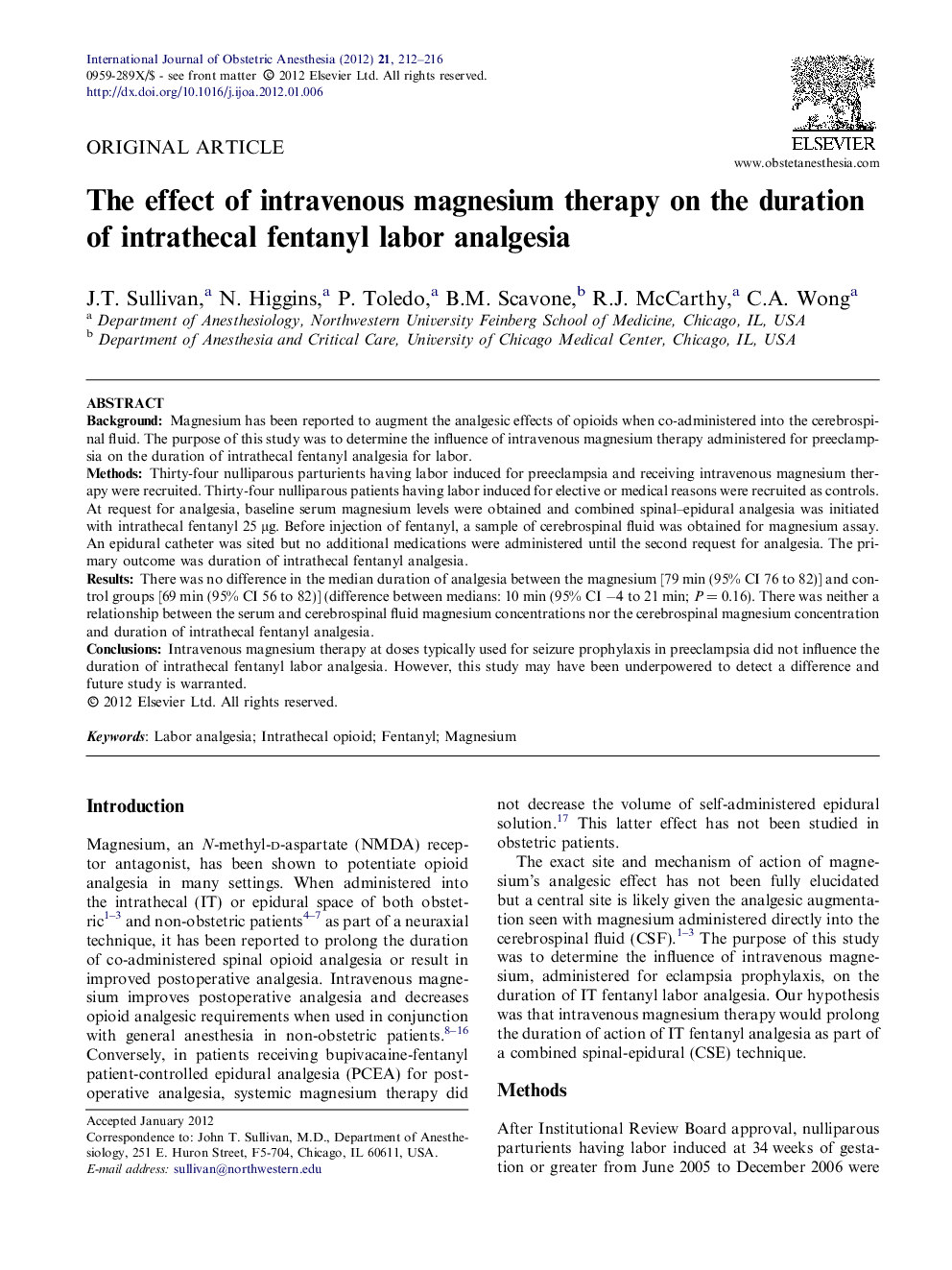| Article ID | Journal | Published Year | Pages | File Type |
|---|---|---|---|---|
| 2757604 | International Journal of Obstetric Anesthesia | 2012 | 5 Pages |
BackgroundMagnesium has been reported to augment the analgesic effects of opioids when co-administered into the cerebrospinal fluid. The purpose of this study was to determine the influence of intravenous magnesium therapy administered for preeclampsia on the duration of intrathecal fentanyl analgesia for labor.MethodsThirty-four nulliparous parturients having labor induced for preeclampsia and receiving intravenous magnesium therapy were recruited. Thirty-four nulliparous patients having labor induced for elective or medical reasons were recruited as controls. At request for analgesia, baseline serum magnesium levels were obtained and combined spinal–epidural analgesia was initiated with intrathecal fentanyl 25 μg. Before injection of fentanyl, a sample of cerebrospinal fluid was obtained for magnesium assay. An epidural catheter was sited but no additional medications were administered until the second request for analgesia. The primary outcome was duration of intrathecal fentanyl analgesia.ResultsThere was no difference in the median duration of analgesia between the magnesium [79 min (95% CI 76 to 82)] and control groups [69 min (95% CI 56 to 82)] (difference between medians: 10 min (95% CI −4 to 21 min; P = 0.16). There was neither a relationship between the serum and cerebrospinal fluid magnesium concentrations nor the cerebrospinal magnesium concentration and duration of intrathecal fentanyl analgesia.ConclusionsIntravenous magnesium therapy at doses typically used for seizure prophylaxis in preeclampsia did not influence the duration of intrathecal fentanyl labor analgesia. However, this study may have been underpowered to detect a difference and future study is warranted.
